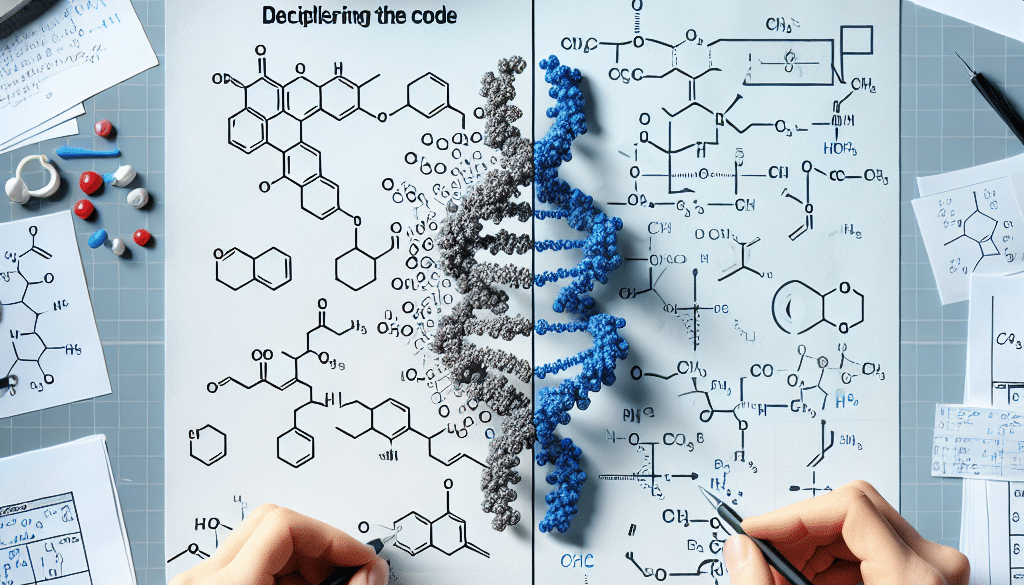14.3.3 Eta Protein 0.2: Deciphering the Code
-
Table of Contents
- 14.3.3 Eta Protein 0.2: Unraveling the Mysteries of Cellular Signaling
- Understanding the 14.3.3 Protein Family
- The Specifics of 14.3.3 Eta Protein
- Functional Roles of 14.3.3 Eta Protein
- 14.3.3 Eta Protein in Health and Disease
- Case Studies and Research on 14.3.3 Eta Protein
- Therapeutic Potential and Future Directions
- Conclusion: Decoding the 14.3.3 Eta Protein’s Role
- Discover ETprotein’s High-Quality Protein Products
14.3.3 Eta Protein 0.2: Unraveling the Mysteries of Cellular Signaling
The 14.3.3 eta protein is a fascinating and crucial component of cellular signaling pathways. Its role in regulating various biological processes makes it a significant point of interest for researchers in the fields of biochemistry and molecular biology. This article aims to provide a comprehensive understanding of the 14.3.3 eta protein, its functions, and its implications in health and disease.
Understanding the 14.3.3 Protein Family
The 14.3.3 proteins are a family of highly conserved proteins found in all eukaryotic organisms. They are involved in a wide range of cellular processes, including signal transduction, apoptosis, cell cycle control, and gene expression. The name “14.3.3” refers to the proteins’ migration position in electrophoresis gels, indicating their molecular weight and isoelectric point.
There are seven isoforms of 14.3.3 proteins in mammals, named beta, gamma, epsilon, sigma, zeta, tau, and eta. Each isoform has a specific expression pattern and function, although they share a high degree of structural similarity. The 14.3.3 proteins function as homodimers or heterodimers, forming complexes with a wide variety of partner proteins.
The Specifics of 14.3.3 Eta Protein
The 14.3.3 eta protein is one of the lesser-studied isoforms, but it plays a critical role in the regulation of cellular processes. It is known to interact with over 200 different target proteins, modulating their activity, stability, and localization. The “0.2” in “14.3.3 Eta Protein 0.2” could refer to a specific variant or context in which the protein is being studied.
Functional Roles of 14.3.3 Eta Protein
The 14.3.3 eta protein is involved in several key cellular functions:
- Signal Transduction: It modulates signaling pathways by binding to phosphorylated serine/threonine residues on target proteins.
- Apoptosis: By interacting with pro-apoptotic and anti-apoptotic proteins, 14.3.3 eta can influence cell survival.
- Cell Cycle Control: It plays a role in checkpoint control, ensuring proper cell division and DNA damage response.
- Neuronal Development: 14.3.3 eta is implicated in the development and function of the nervous system.
14.3.3 Eta Protein in Health and Disease
The dysregulation of 14.3.3 eta protein has been associated with various diseases, including cancer, neurodegenerative disorders, and autoimmune diseases. For example, overexpression of 14.3.3 eta has been observed in certain types of cancer, suggesting a potential role in tumorigenesis. Conversely, reduced levels of 14.3.3 eta have been linked to neurodegenerative diseases such as Alzheimer’s, indicating its importance in neuronal health.
Case Studies and Research on 14.3.3 Eta Protein
Several studies have highlighted the importance of 14.3.3 eta protein in disease mechanisms:
- In cancer research, the protein’s interaction with oncogenes and tumor suppressors has been extensively studied, providing insights into potential therapeutic targets.
- In neurodegenerative diseases, the protective role of 14.3.3 eta against protein aggregation and neuronal death is being investigated.
- In autoimmune diseases, the presence of autoantibodies against 14.3.3 eta protein has been explored as a diagnostic marker.
Therapeutic Potential and Future Directions
The modulation of 14.3.3 eta protein activity presents a promising avenue for therapeutic intervention. Small molecule inhibitors or enhancers could be developed to restore normal protein function in diseases where it is dysregulated. Additionally, understanding the protein’s structure and binding mechanisms can lead to the design of more targeted drugs.
Future research will likely focus on elucidating the precise molecular interactions of 14.3.3 eta protein with its partners, as well as its role in specific cellular contexts. Advanced techniques such as cryo-electron microscopy and mass spectrometry will aid in these discoveries.
Conclusion: Decoding the 14.3.3 Eta Protein’s Role
The 14.3.3 eta protein is a critical player in cellular signaling and function. Its involvement in health and disease underscores the importance of continued research into its mechanisms of action. By deciphering the code of the 14.3.3 eta protein, scientists can unlock new therapeutic strategies for a range of diseases.
Discover ETprotein’s High-Quality Protein Products
If you’re interested in the practical applications of proteins in industry and research, ETprotein offers a range of high-quality protein products. Their portfolio includes organic rice protein, pea protein, and various seed proteins, all characterized by their neutral taste and non-GMO, allergen-free attributes.
ETprotein caters to industries such as nutraceuticals, pharmaceuticals, and food and beverage, providing comprehensive solutions for protein needs. With a reputation for excellence and a client base that includes leading global brands, ETprotein is your go-to source for plant-based protein products.
About ETprotein:
ETprotein, a reputable plant protein vegan protein Chinese factory manufacturer and supplier, is renowned for producing, stocking, exporting, and delivering the highest quality organic bulk vegan protein and plant proteins. They include Organic rice protein, clear rice protein, pea protein, clear pea protein, watermelon seed protein, pumpkin seed protein, sunflower seed protein, mung bean protein, peanut protein etc. Their offerings, characterized by a neutral taste, non-GMO, allergen-free attributes, cater to a diverse range of industries. They serve nutraceutical, pharmaceutical, cosmeceutical, veterinary, as well as food and beverage finished product distributors, traders, and manufacturers across Europe, USA, Canada, Australia, Thailand, Japan, Korea, Brazil, and Chile, among others.
ETprotein specialization includes exporting and delivering tailor-made protein powder and finished nutritional supplements. Their extensive product range covers sectors like Food and Beverage, Sports Nutrition, Weight Management, Dietary Supplements, Health and Wellness Products, and Infant Formula, ensuring comprehensive solutions to meet all your protein needs.
As a trusted company by leading global food and beverage brands and Fortune 500 companies, ETprotein reinforces China’s reputation in the global arena. For more information or to sample their products, please contact them and email sales(at)ETprotein.com today.












